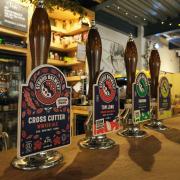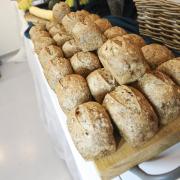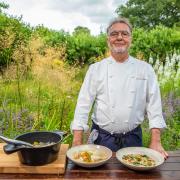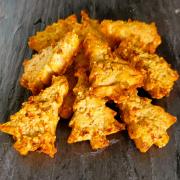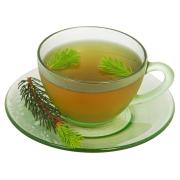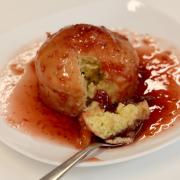Farming life in the Cotswolds with the Countryfile presenter
Kent is the ‘Garden of England’, East Anglia is ‘Britain’s bread-basket’ and Somerset is famous for being the ‘Orchard County’. So, what sunny, summery label could we give the Cotswolds to tell the world about our rich, fertile farming and the great quality food it provides?
Now is the perfect time to give it some thought, as fields of golden wheat and barley ripple in the warm breeze, ready to be harvested. It’s the culmination of the farming year, and across the Cotswolds huge swathes of the countryside are alive with activity and the thrum of machinery as the combines cut their way through the ripened crops.
Our team at Bemborough Farm is responsible for 4,000 acres of arable land and, by the time September comes round, we’ll have brought in thousands of tonnes of oilseed rape, barley and winter wheat. The long, hot days working in the fields and the hard graft to gather in the crops between the summer showers and thunderstorms are all worthwhile when the end result is fresh British-made produce; from salad dressings and cooking oil to bottles of beer and loaves of bread.
Twelve months of planning and nurturing – along with the financial health of the business – now hinge on a few short weeks of frenetic activity. So, there’s no denying that a good, high-yielding arable harvest is vital for everyone concerned, but our special corner of the country produces much more than field crops. Beyond the scarp, in the wide flat vale of Gloucester, you’ll find some of the finest cattle pasture in England. This is classic dairying terrain, and that means milk, cream and especially cheese.
Gloucestershire could easily be considered the cheese capital of the UK, with wonderful, distinctive varieties that more than match anything produced in France or Holland. Across the county borders it’s fruit, not fromage, that steals the show. The juicy apples of Herefordshire and the succulent pears of Worcestershire are renowned, along with acre after acre of favourites, like blackcurrants, cherries, plums and damsons. We’re pretty good when it comes to the green stuff, too, and the king of vegetables has to be Evesham asparagus – just in season as summer gets underway.


Now, given half a chance, I’ll always try to get one of my lovely Gloucestershire Old Spots sows on the telly, and they’re such friendly, docile creatures that they always seem to play to the cameras. But, despite the Old Spots’ appeal, it’s really Wiltshire which can claim to be the pig county of the west. In fact, Wiltshire’s biggest town gets its name from home-grown hogs; in Saxon times Swindon was known as Swine Dun, meaning pig hill, and, sure enough, the Old Town area was developed on farmland where pigs were once bred.
One of our modern breeds, the British Saddleback, owes its heritage to the county, too. It was developed from two similar but separate breeds: the old Essex pig and another lop-eared, coloured porker called the Wessex Saddleback, which used to forage in the Wiltshire woodlands in huge numbers. And if you’ve ever bought and enjoyed Wiltshire ham, well that’s thanks to the Harris family from Calne. In the 1700s, they created a new way of curing meat, preserving it using salt, and after a few tweaks and changes to the method down the centuries, we still call it Wiltshire cured ham today.
So, there are lots of reasons why our region could be called the garden, the bread-basket or the orchard of England. But, with apologies to my Australian mates, I think there’s an even better tag – The Land of Plenty.
Follow Adam on Twitter: @AdamHenson
Cotswold Farm Park, 01451 850307; cotswoldfarmpark.co.uk








